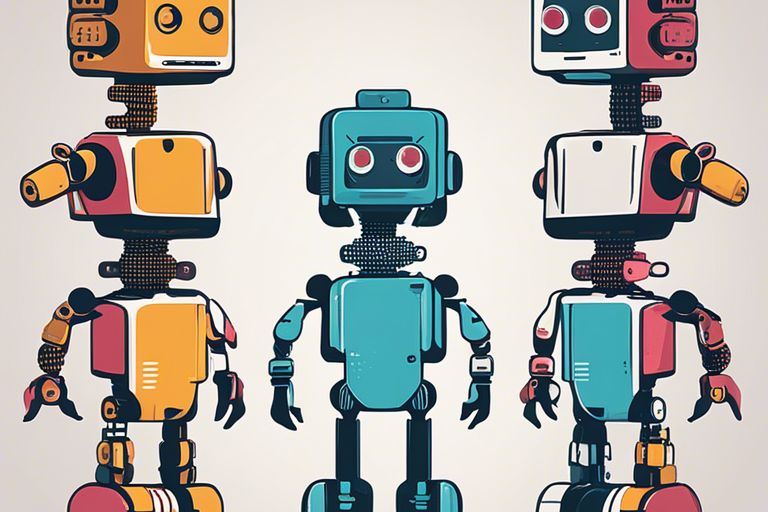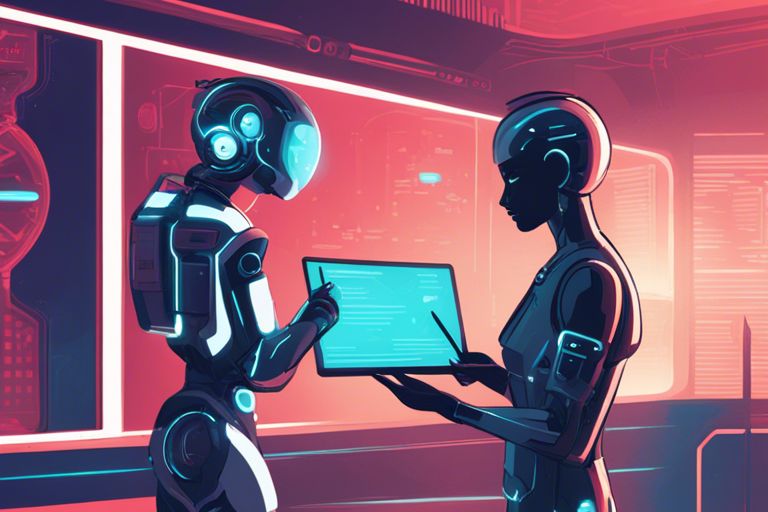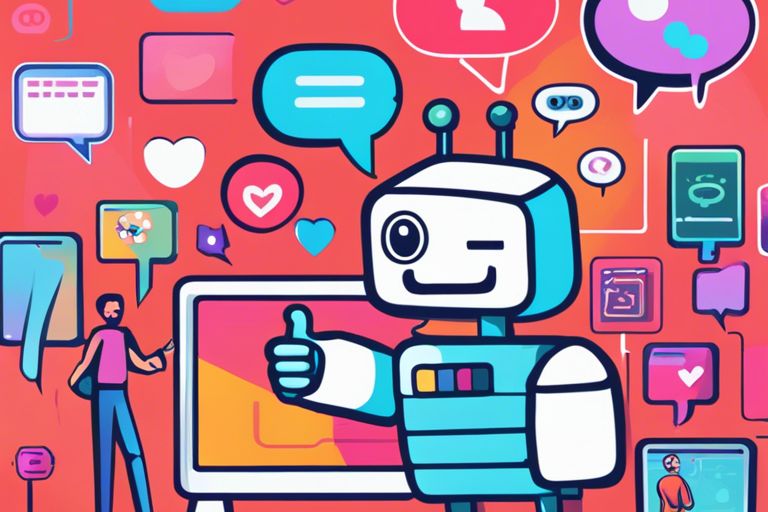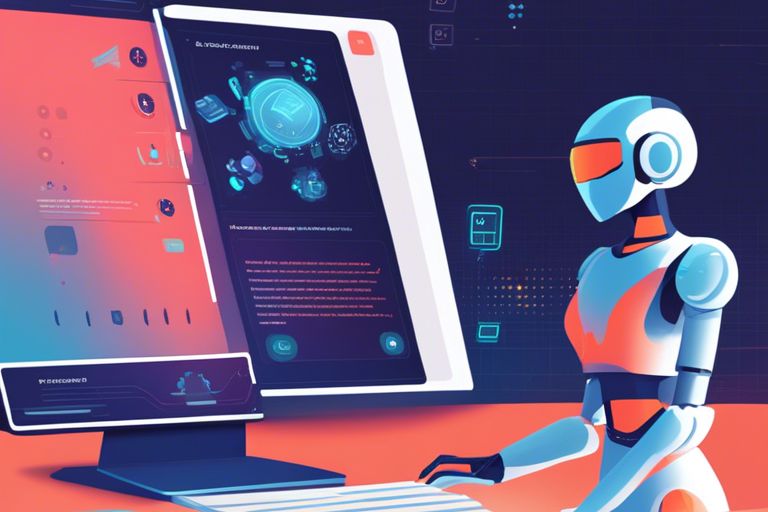
Machine Learning is not just a buzzword but a powerful engine driving the evolution of AI chat bots. By enabling these bots to learn from data and improve over time without explicit programming, machine learning is revolutionizing the way AI interacts with humans. This technology enhances chat bots’ abilities to understand natural language, personalize responses, and even predict user behavior. However, with great power comes great responsibility, as the use of machine learning in AI chat bots raises ethical concerns about privacy, data security, and potential biases. Understanding the impact of machine learning on AI chat bots is crucial in navigating this ever-changing landscape of technology.
Key Takeaways:
- Enhanced Understanding: Machine Learning helps AI chat bots to understand user inputs more effectively, leading to improved communication and interaction.
- Personalization: By leveraging Machine Learning algorithms, AI chat bots can provide personalized responses and recommendations based on user preferences and behaviors.
- Continuous Improvement: Machine Learning enables AI chat bots to learn from previous interactions and feedback, allowing them to continuously evolve and enhance their capabilities over time.

Decoding Machine Learning: AI’s Secret Sauce
What is Machine Learning (ML)?
Some say machine learning is AI’s secret sauce, the power behind the curtain that makes the magic happen. In simple terms, machine learning is a subset of artificial intelligence that allows machines to learn and improve from experience without being explicitly programmed. It’s like teaching a computer to think and make decisions on its own, by analyzing and recognizing patterns in data.
ML’s Role in Advancing AI Chat Bots
Chat bots have become the cool kids in town, thanks to machine learning. These AI-powered virtual assistants have evolved from robotic responders to witty conversational partners, capable of understanding user intent and providing personalized responses. Machine learning plays a crucial role in advancing AI chat bots by enabling them to continuously learn from interactions with users, improving their accuracy and efficiency.
Machine learning is the fuel that drives the evolution of AI chat bots, making them more intelligent and adaptive. By leveraging complex algorithms, chat bots can analyze vast amounts of data in real-time, allowing them to respond to user queries with speed and precision. This rapid learning process not only enhances the user experience but also empowers chat bots to handle more complex tasks, such as natural language processing and sentiment analysis.
The Chat Bot Evolution: Mimicking Human Banter
The Learning Curve: How Bots are Getting Schooled
All great minds need a little schooling, even AI chatbots. With machine learning at their core, chatbots are constantly evolving and learning from every interaction. By analyzing data patterns and user feedback, these bots adapt and improve over time, making them more adept at engaging in human-like conversations.
A Symphony of Algorithms: Natural Language Processing and Beyond
Beyond the basics of machine learning lies a complex symphony of algorithms that power natural language processing (NLP) in chatbots. These algorithms not only enable bots to understand and generate human language but also dive deeper into sentiment analysis, contextual understanding, and even generate creative responses. It’s a magical blend of technology and linguistics that brings chatbots closer to emulating human communication.
Understanding the intricacies of NLP and advanced algorithms can unlock a world of possibilities for chatbots. From personalized interactions to improved customer service, the potential for AI chatbots to revolutionize various industries is immense. However, this power comes with responsibilities to ensure data privacy, ethical use of AI, and continuously monitoring for biases in algorithms.

The Impact Unleashed: Altering The Digital Landscape
Revolutionizing Customer Service
After embracing machine learning, AI chatbots have revolutionized customer service by providing round-the-clock support, personalized interactions, and instant responses to queries. With advanced algorithms, these chatbots can analyze vast amounts of data to tailor their responses to individual customer needs, enhancing user experience and satisfaction.
Changing the Face of Data Analysis and Insights
Impact: With the integration of machine learning, AI chatbots are changing the face of data analysis and insights. These intelligent bots can sift through massive datasets in real-time, extracting valuable insights and trends to help businesses make informed decisions. By leveraging machine learning algorithms, organizations can gain a deeper understanding of customer behavior and preferences.
Altering the digital landscape, AI chatbots armed with machine learning capabilities are reshaping industries by providing more efficient and cost-effective solutions. They enable businesses to streamline operations, improve customer service, and drive innovation through data-driven insights. However, with great power comes great responsibility, as the reliance on AI chatbots for critical tasks raises concerns about data privacy and ethical implications.
Social and Ethical Considerations
The Art of Responsibility: Bias and Privacy Concerns
One of the key challenges in the development of AI chat bots is the ethical responsibility that comes with it. Bias in data sets can lead to discriminatory behavior in AI chat bots, impacting the way they interact with users. Additionally, privacy concerns arise as AI chat bots have access to sensitive personal information. It is vital for developers to address these issues proactively to ensure a fair and secure user experience.
Navigating the Human-Bot Relationship
An vital aspect of AI chat bots is their interaction with humans. Understanding human emotions and context is crucial for creating a more personalized and effective experience. AI chat bots need to strike a balance between being helpful and intrusive, respecting boundaries while providing assistance. As AI continues to evolve, so too must the way we navigate the human-bot relationship.
This is not just a matter of programming; it’s a delicate dance between technology and humanity. While AI chat bots can offer convenience and efficiency, they also raise questions about authentic human connection and the erosion of privacy. Striking the right balance requires constant evaluation and adaptation.
Conclusion
Now, with the help of machine learning, AI chat bots are evolving at a rapid pace, becoming more intelligent and capable of handling complex conversations. By continuously learning from interactions with users, these chatbots are improving their responses and becoming more personalized. Machine learning plays a crucial role in making AI chat bots more efficient, user-friendly, and effective in various industries. The future of AI chat bots looks promising, thanks to the advancements in machine learning technology.
FAQ
Q: Why should I care about the impact of machine learning on the evolution of AI chatbots?
A: Because if you don’t, the robots might just take over and we’ll all be stuck answering to our chatbot overlords.
Q: How does machine learning shape the development of AI chatbots?
A: Machine learning is like the secret sauce that makes AI chatbots smarter over time. It allows them to learn from data and interactions, getting better at understanding and responding to users.
Q: Can AI chatbots really become smarter than humans thanks to machine learning?
A: Well, they might not be beating us at chess (yet), but with enough data and algorithms, AI chatbots have the potential to surpass human capabilities in certain tasks. So maybe we should start being extra nice to them, just in case.
Related Articles
Depeche Code
April 12, 2024
Depeche Code
April 18, 2024
Depeche Code
April 24, 2024



